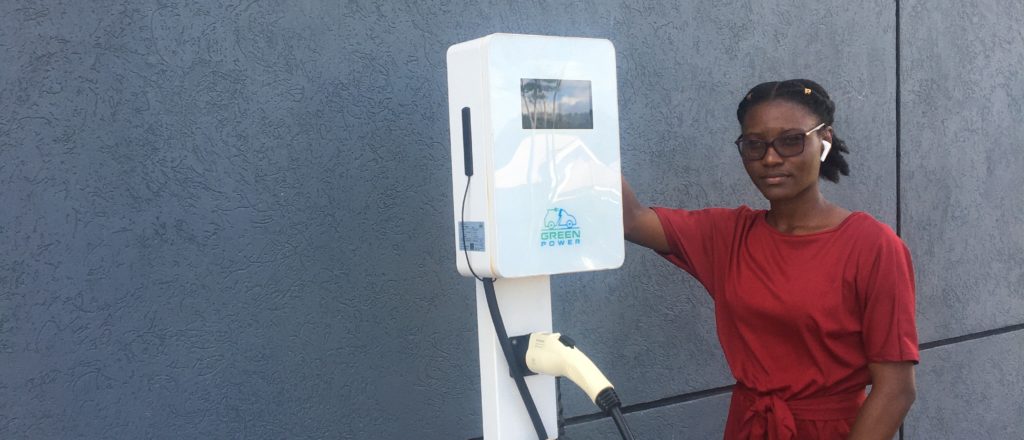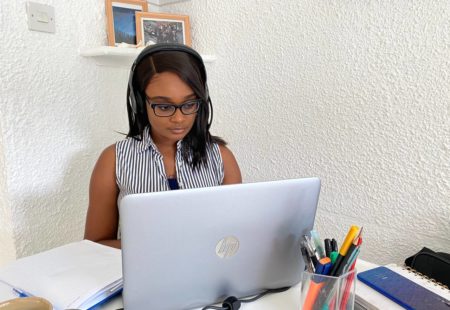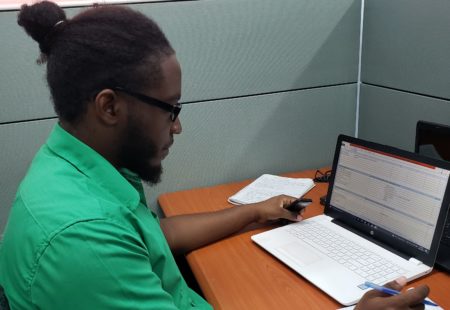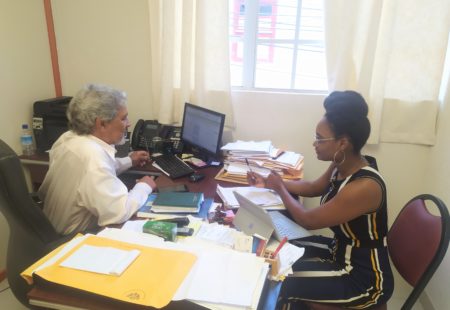The Future of Pure Grenada: Renewable Energy

By: Shevon Stanislaus, Grenada
For many, during unemployment, there is a constant feeling of depression and unfulfillment caused by the inability to accomplish goals that have been set. I also shared that view until one of my mentors convinced me otherwise. She said to me, “although unemployment is stressful and family can make it worse, it is the time where your creativity is discovered because if you’re like me, you can’t just do nothing”. From that moment, I was on a quest to seek and grasp every paid or unpaid opportunity presented to develop myself both personally and professionally. It was around the same time I saw this opportunity: to intern with the Caribbean Centre for Renewable Energy and Energy Efficiency (CCREEE).
Although at the time I had little knowledge on the energy sector in Grenada, I was knowledgeable in the field of environmental sustainability as I have attained a bachelor’s degree in Marine Wildlife and Conservation Biology at St. George’s University. I have also volunteered or worked parttime with several independent and government entities on multiple sustainability initiatives. Many of which involved intense data collection and analysis and thus, I knew that I was a great fit for this intern position. I applied and was accepted-my first regional gig.
Two days into the internship, I was disappointed with my country’s performance as it relates to setting and achieving renewable energy targets. Grenada has set a renewable energy target of 100% by 2030 both in the energy and transport sectors. While it is true that we have the potential, it is also true that we lack the capacity to meet such an objective. Therefore, to date, RE is only 6.2% of our installed capacity. With that, my question is: how well do we understand the benefits of a transformation from conventional to renewable energy? This transformation does not only seek to benefit the environment but also the power producer, the Government of Grenada, and the people. However, we must understand that such targets cannot be met by the efforts of one entity, but all stakeholders must be on board.
Although I have experienced the frustration of collecting data in Grenada’s fisheries sector, I was not aware that it is just as difficult in the energy sector. However, I believe that once extensive public awareness and education is given to all stakeholders as to the importance of energy data that the system will improve. One can only hope that this is the case. Maybe we lack persons with specialized training and a genuine interest in renewable energy. Maybe we need to hire based on qualifications, genuine interests, and experience. While there may be many reasons for major setbacks in meeting our RE targets, what is evident is the lack of awareness on the economic and other benefits RE.
Maybe our targets are very ambitious, but we have the potential to make a full transformation. Therefore, we need to set more realistic targets and work steadfastly towards achieving them. Setting targets aren’t for show, it is our life we’re trying to protect!!
My next academic movement is to pursue a master’s degree in Climate Change and Environmental Policy and this internship has cemented my path in Climate Change management. However, this internship has driven my focus more towards the renewable energy sector. Therefore, in the meanwhile, I seek to engulf any renewable energy related opportunity that may come my way and I suggest that you do the same. We all have a part to play and there is no greater fulfillment than being a part of something great-something worthwhile.



